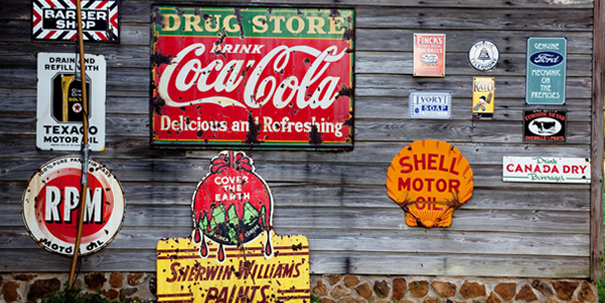
There are many factors to consider when developing your online brand.
If you look closely at the income statement of any multi-national company, you’ll often see an entry called ‘goodwill’. What exactly is that? Well, it’s basically brand value – what operating with a specific name or as a specific entity is worth. Think about it: whenever consumers buy a product, they don’t always go for the one with the most features, or the one that offers the lowest price. People go for brands because brands, in themselves, guarantee certain things. Those things may be style, function, reliability, honesty, simplicity, or even something with a jaunty tangent such as quirkiness, ingenuity, innovation, or a hint of rebellion. And goodwill, sometimes worth billions of dollars, is the value assigned to having customers know and believe that your products or services will always have all of those traits.
The world’s most successful businesses are memorable brands that have a trusted reputation to deliver the various benefits that the company’s target market is looking for. To develop a brand, you must have a very clear idea of what you want your brand to be, what you want as the first thing that pops into people’s minds when they hear your name, and what it is you want to deliver in terms of customer benefits or utility. By developing your personal brand, you will be able to not only develop a deeper relationship with your customers, but also build a wide base of loyal followers – and loyal followers are the types who have your product or service in mind even if they aren’t looking to buy anything at this particular point in time.
What you need to do to develop an effective, memorable online brand
Talk about benefits, not features.
Features of your business are only characteristics which may or may not change over time. However, benefits of a product or service are things that will actually help your customers, and that’s what customers care about. If you focus on the benefits that you are able to provide to your target demographic, you’ll make a lasting impression on your customers.
Relationships matter more than simple transactions.
Strong relationships are what will promote and strengthen your brand image, and developing them will help with the goal of making your company the first one a customer thinks of when they need the products or services that you happen to provide. Social media, online conversations, loyalty programs, and newsletters are good ways you can drive deeper and more meaningful interactions with customers instead of making a sale and that being the end of it.
Honesty is the best policy.
In this day and age, anyone can spot a phony, and there is nothing that many consumers appreciate more than a business that is authentic and transparent in what it provides. If you can share pictures and videos of yourself or your team online, or share personal experiences you’ve had that relate to customer issues, doing so will give you an edge over other companies who do the same thing as you but in a mechanical, aloof manner. And remember, people connect with people, so your brand should be a reflection of who you are. Your beliefs, your passions, your strengths and priorities – these are the things that come out naturally when you speak, so they will automatically be reflected in your brand if you position it in the right way.
Standardize, standardize, standardize!
Your online presence should be in sync with your offline presence, and your brand MUST be portrayed consistently across all platforms every time customers interact with you. Your website, online and offline ads, social media posts, and even business cards, worker uniforms, product packaging, and store or office themes should convey the same message of whatever angle your brand is going for.
Squeeze social media for what it’s worth, and blog regularly.
Every company should set up social media sites. Every page should link to others to cross-promote your content, and have like, share, and comment buttons as well. A unique hashtag that you always use, or a personal quote that you may want to have associated with your company, can also be placed consistently alongside your posts, logos, ads, or other online content.
Further develop your blog, and fine-tune your online presence. Are you providing your visitors with relevant and up-to-date information? Is your web page or online portal modern and easy to navigate? Is your domain name easy to remember, and related to your particular niche? Do you have a logo that is unique, appropriate for your specific type of business, and sets you apart from the crowd? Your logo, domain name, and web page can be set up in such a way that all your visitors have a pleasant experience when they visit you, and that they will be able to later recall you by name and perhaps even share their experience with others. If your blogs contain relevant information or answers to standard questions (or even articles about specific, hard-to-find details relevant to your field) then you may well be on your way to becoming an industry thought leader.
Give it time, and be sincere.
Successful branding takes a lot of patience, so don’t expect to see immediate results. You need to engage regularly – and engage often – with your customers in ways that promote your brand, and if you engage with them in the right way by taking care of the points above, you’ll have long-lasting results.
